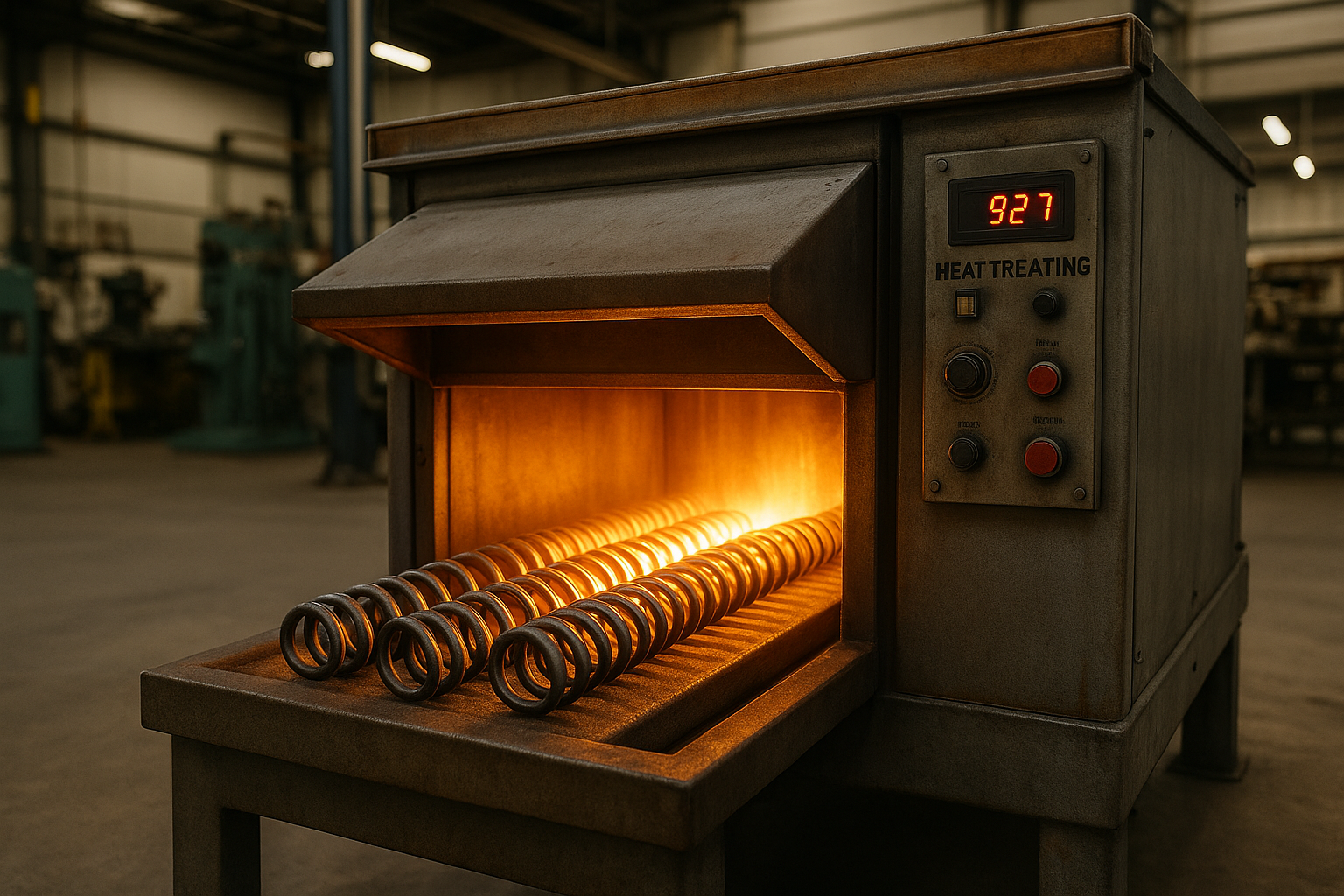
How Temperature Affects Spring Performance
Posted on: 12 Aug, 2025
In industrial applications, springs are expected to perform consistently under different environmental conditions. One factor that can significantly impact their performance is temperature. Whether in automotive engines, electrical appliances, or heavy-duty machinery, understanding how temperature affects spring performance is essential for product reliability and safety.
Why Temperature Matters in Spring Performance
Springs work by storing and releasing mechanical energy, which relies on the elasticity of the material. When exposed to high or low temperatures, the material properties can change, affecting the spring's load capacity, flexibility, and durability.
Effects of High Temperatures
At high temperatures, metals can lose their strength and stiffness. This reduction in tensile strength can cause springs to deform under load or lose their ability to return to their original shape. For example, in automotive engines or industrial ovens, springs made from standard materials may suffer from permanent set or creep, leading to reduced performance and possible failure.
Effects of Low Temperatures
Low temperatures can make spring materials more brittle, reducing their ability to flex without cracking. This is especially critical for applications like aerospace components or refrigeration units, where exposure to sub-zero conditions is common. Using the wrong material in such environments can lead to sudden breakage and costly downtime.
Material Selection for Temperature-Resistant Springs
Choosing the right material is the most effective way to ensure springs perform well across temperature extremes. Common materials for high-temperature applications include Inconel, stainless steel alloys, and chrome silicon. For low-temperature environments, alloys with high impact resistance and ductility are preferred.
Design Considerations for Temperature Stability
Beyond material choice, design adjustments such as coil diameter, number of active coils, and heat treatment processes can enhance a spring’s ability to withstand temperature fluctuations. Engineers often use simulations and real-world testing to verify a spring’s performance before full-scale production.
Real-World Applications
Temperature-resistant springs are used in various industries, including:
- Automotive: Engine valve springs, exhaust system components
- Electricals and Appliances: Heating systems, industrial ovens
- Heavy Machinery: Mining equipment, drilling tools
- Aerospace: Components exposed to extreme altitude conditions
Ranoson’s Commitment to Temperature-Ready Springs
At Ranoson, we understand that performance cannot be compromised, no matter the temperature. Our spring manufacturing process includes rigorous material testing, precision CNC machining, and heat treatments tailored to the intended operating environment. We stay up to date with the latest technology, regularly upgrading our equipment and processes to ensure we deliver the highest-quality springs that stand the test of time and temperature.
Temperature fluctuations can have a significant impact on spring performance. By selecting the right materials, optimizing design, and partnering with a trusted manufacturer like Ranoson, OEMs and suppliers can ensure their products remain reliable and efficient in any environment.
Let us help you accelerate your growth with springs that last.
📧 sales@ranoson.co.in
📞 +91 7895010088 | +91 7217013190
🌐 www.ranoson.co.in
